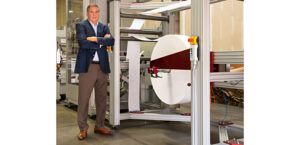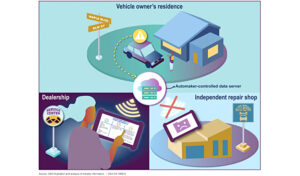The marketplace is slow to adopt change, because only a fraction of the stock of vehicles is replaced each year, highlighting importance of ZEV incentives
Washington, D.C.—This month, President Joe Biden signed the Inflation Reduction Act (IRA) into law. A study by Energy Innovation, a climate policy think tank, stated that “the IRA is the most significant federal climate and clean energy legislation in U.S. history, and its provisions could cut greenhouse gas (GHG) emissions 37 to 43 percent below 2005 levels.”
The Inflation Reduction Act includes $369 billion in funding for emissions-reducing climate and clean energy provisions including large-scale clean energy technology manufacturing investments, environmental justice and electric vehicle (EV) tax credits. The IRA includes a tax credit of up to $7,500 for personal electric vehicles. The credit amount depends on a variety of factors, such as whether the vehicle battery meets manufacturing standards, vehicle MSRP price, individual household income and Made-In-America provisions.
The Energy Innovation study modeled the effect of these tax credits based on a low, moderate and high scenario. The low scenario accounted for the possibility that no vehicle manufacturers will qualify for the EV credit, while the high scenario assumed that a gradually increasing share of new vehicles would qualify for the credit, with all new vehicles qualifying by 2030. In all three scenarios, the change in market stock EV and Plug-In Hybrid Electric Vehicles (PHEVs) did not significantly increase by 2030.
The transportation marketplace is slow to adopt change, because only a fraction of the stock of vehicles is replaced each year. The Energy Innovation Study found that “it can take many years to realize deep sectoral reductions, even with high shares of clean vehicle deployment. This highlights the importance of strong ZEV [Zero Emission Vehicle] incentives in the next decade, as waiting runs the risk of missing climate goals due to slow stock turnover.”
Automotive Service Association Chairman Fred Hules commented on the study, stating, “ASA is working hard to ensure that independent vehicle repair shops are prepared for a changing marketplace that will include a higher share of battery-electric and plug-in hybrid electric vehicles. This includes investing in electric vehicle repair training so that shops are able to repair the vehicles they see today, and well into the future.”
Read the Energy Innovation study here.







Comments are closed.